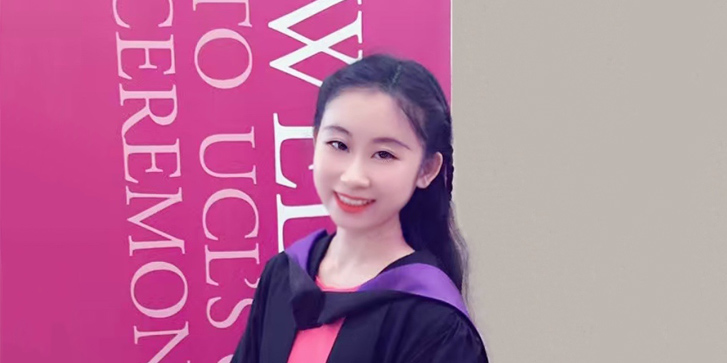
Xinyue Li
Xinyue supports work on research strategy and writing of the wider Cambridge Mathematics project. She also conducts and contributes to case studies to explore a number of mathematical topics and themes, and coordinates the external review process including managing relationships with external reviewers.
As an educational researcher, Xinyue studied a BA in Education Studies at UCL – Institute of Education, where she researched how students used smartphones to learn in a variety of contexts. While there, she also worked as a Student Ambassador. After graduating with a First Class degree, she then undertook an MPhil in Educational Research at the University of Cambridge, where she explored how students used portable devices to learn mathematics, and developed a high level of analytical capability in qualitative, quantitative, and mixed-methods research. She then stayed to investigate secondary school-age learners' out-of-class (community and home-based settings) STEM learning experience with digital technology for her PhD at the Faculty of Education, University of Cambridge.
Xinyue worked as a supervisor of education for undergraduate courses and as an undergraduate examination invigilator at the University of Cambridge before joining Cambridge University Press & Assessment in 2022. She also reviewed a book proposal for the Royal Society of Chemistry (RSC) and reviewed a manuscript for the journal Teacher Development.
Academic qualifications:
BA (Hons); MPhil; PhD
Professional memberships
2022 – present International Society for Design and Development in Education (ISDDE): Fellow
2022 – present Association of Learning Technology (ALT): Associate Member
2022 – present British Society for Research into Learning Mathematics (BSRLM): Member
Publications
Li, X., & Taber, K. S. (2022). The future of interaction: Augmented reality, holography and artificial intelligence in early childhood science education. In S. Papadakis & M. Kalogiannakis (Eds.), STEM, robotics, mobile apps in early childhood and primary education: Lecture notes in educational technology. Springer.
Taber, K. S., & Li, X. (2021). The vicarious and the virtual: A Vygotskian perspective on digital learning resources as tools for scaffolding conceptual development. In A. M. Columbus (Ed.), Advances in psychology research (Vol. 143, pp. 1–72). Nova.
Li, X. (2014). Book Review: Cambridge Chinese for Beginners: Textbook 2. London Review of Education, 12(3), 147–149.
Awards
2019 – Winner of Going Global (British Council’s annual conference for leaders of international education) Poster Competition
2014 – Best Blogger of the Year, London Study Ambassador Programme (LSAP), London Universities International Partnership (LUIP)